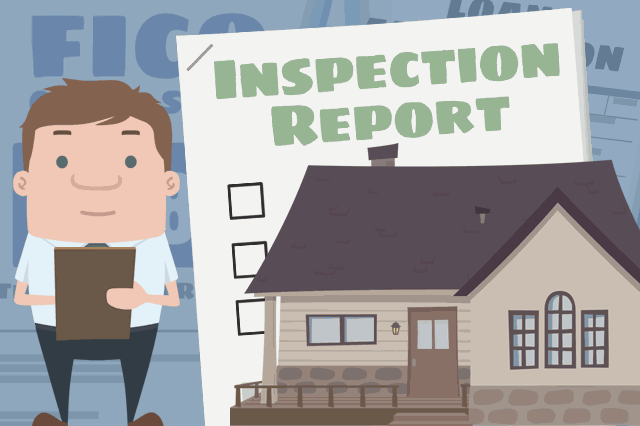FHA Loan Tip: What a Home Inspection Tells You

The home inspection on the property you buy with your FHA mortgage is something you the borrower must arrange and pay for.
It’s highly recommended that you include a contingency clause in any purchase agreement you make that makes the sale of the property dependent on the results of the home inspection, or make some other type of legally binding arrangement so that you are not locked into purchasing a home that does not get good results on the inspection.
What Your Home Inspection Tells You
The home inspection covers the roof, the basement, crawl space, the mechanical systems of the home, foundation, and much more. If you have concerns about the property before the inspection begins, be sure to pass along those issues to the inspector.
The home inspection should result in a Home Inspection Report that covers the inside of the property, the structure, exteriors, and the mechanical systems of the home.
Some mechanical systems such as certain appliances may be reviewed if installed, but others may not be included even if they are installed-you will need to ask your home inspector which appliances or other systems in the home will be looked at and how.
That is especially important if you notice obvious roof issues, excessive moisture, cracks in the basement or other things that make you worry that the home you’re considering may have hidden issues.
The inspection is a much more up close look at the home and its’ various components than the FHA appraisal, but there may be issues with a home that an inspector cannot address if conditions are generally unsafe to freely do the work.
For example, in an attic, if the insulation prevents the inspector from being able to see where to step, the inspector is not required to walk on that insulation or carry out the work that would be done if the inspector knew where it was safe to step otherwise.
The home inspection tells you about issues that are visible to the inspector. The inspector is not necessarily required to remove drywall or unearth a portion of the foundation that is not visible during the walkthrough of the property.
Why the FHA Appraisal Is Not an Inspection
The appraisal is a tool for the lender and far more cursory than a home inspection. While the inspector (not the appraiser) is not required to pull out the drywall to look behind it or unearth a portion of the foundation (see above) the inspection is generally far more intensive than an appraisal.
Borrowers should never purchase a home based on the results of an appraisal without getting a home inspection in addition to it. Doing so is strongly discouraged by the FHA and HUD; borrowers have no recourse with the FHA if a home is purchased without an inspection and is later found to be defective.
------------------------------
RELATED VIDEOS:
Know What's On Your Credit Report
FHA Loans Have Credit Requirements
Help Is Available With Down Payment Grants

Do you know what's on your credit report?
Learn what your score means.






